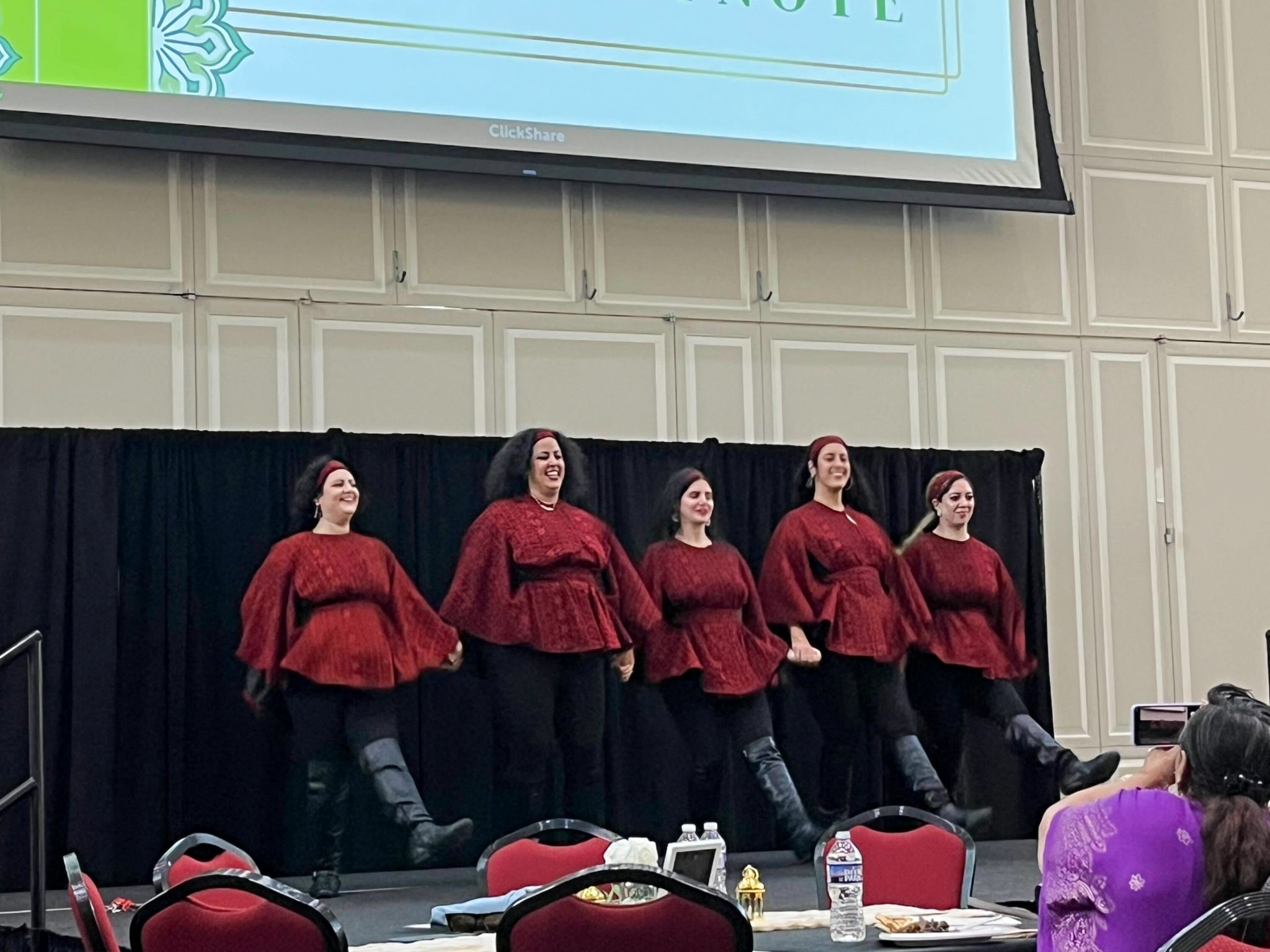By Cullen Griffin
For The Diamondback
The University of Maryland’s Multicultural Involvement and Community Advocacy group hosted its second annual Southwest Asian and North African Heritage Month Gala on Monday night.
The event offered an opportunity for those in the Southwest Asian and North African community to come together and celebrate their culture.
The theme of Monday’s gala was “Stories of Our Home,” which encouraged community members to reflect on the different meanings of home, whether it be food, music, art or film, according to MICA staff member Justine Suegay.
Suegay began the event by speaking on the importance of cultural events like the gala.
“SWANA students have been here at [this university] forever,” Suegay told The Diamondback. “We want to send out as a message to our students that we want to make sure that they’re seen and celebrated here on campus.”
The event featured dishes such as chicken shawarma, roasted lamb and falafel. It also included dance performances by cultural dance groups like Malikat Al Dabke, the first all-women Dabke dance troupe in the Washington, D.C., area.
[UMD career panel highlights Asian, Pacific Islander, and Desi American alumni]
After the dance, Andy Shallal, the founder and CEO of the Washington, D.C. area business Busboys and Poets and a university alum, spoke to attendees.
Shalla spoke about his experiences at this university, including how he completed his master’s in business administration at 62 years old after he had already opened Busboys and Poets.
“It was a great experience,” Shallal said. “I wanted to learn about what is it that I don’t know … why do people go into business school, and then open businesses afterwards?”
[UMD LGBTQ+ community, allies celebrate culture, discuss Trump’s threats at Q’mmunity Kiki]
Shallal also discussed his process of becoming an American citizen and why he founded Busboys and Poets. Shallal said he aimed to make the chain a place that uplifts racial and cultural connections.”
Attendees then enjoyed additional performances from the Iranian Students Foundation and Fuad Foty, the cofounder of the Quartertonez Music.
Foty played a stringed instrument called the oud. He told the audience that Arabic music is live so audiences can feel part of the song.
“If I play a song on two different days, it’s two different songs, right?” Foty said before his performance. “Having everyone’s attention like this is great because that’s what’s required of Arabic music.”
The event ended with an open dance floor for everyone to enjoy more music and continue the celebration.



